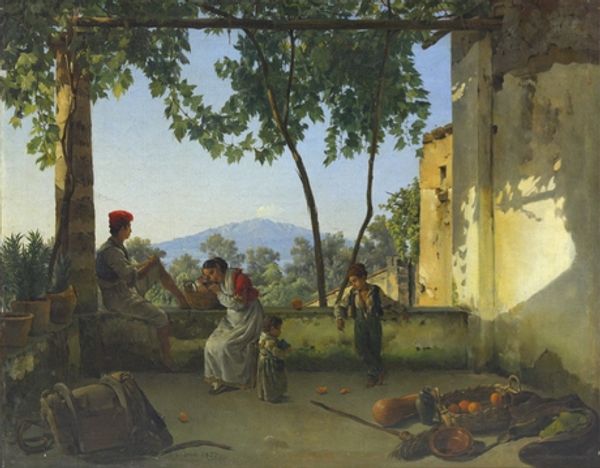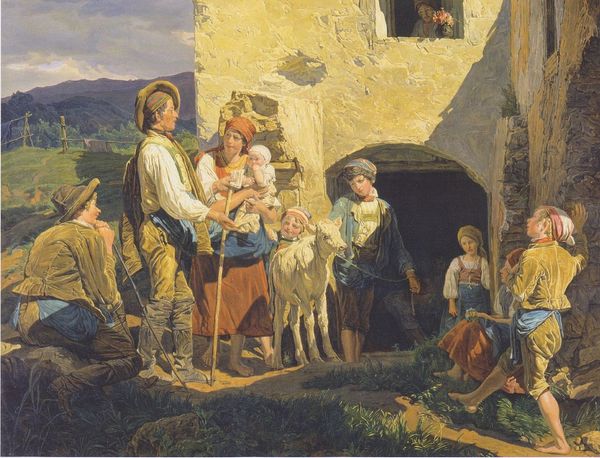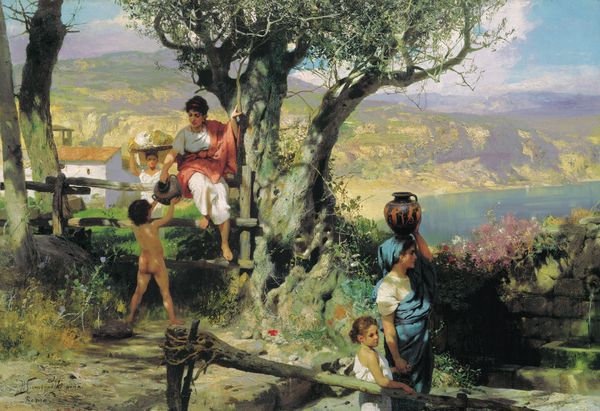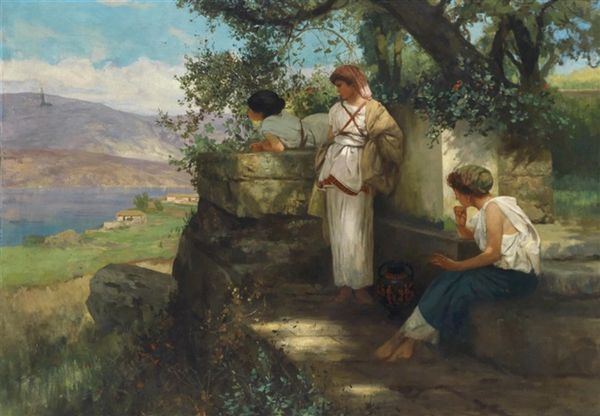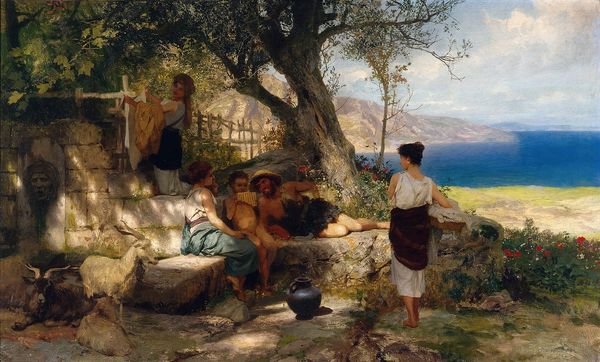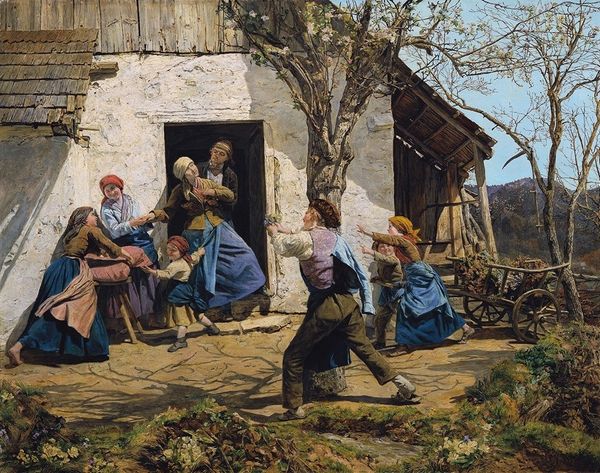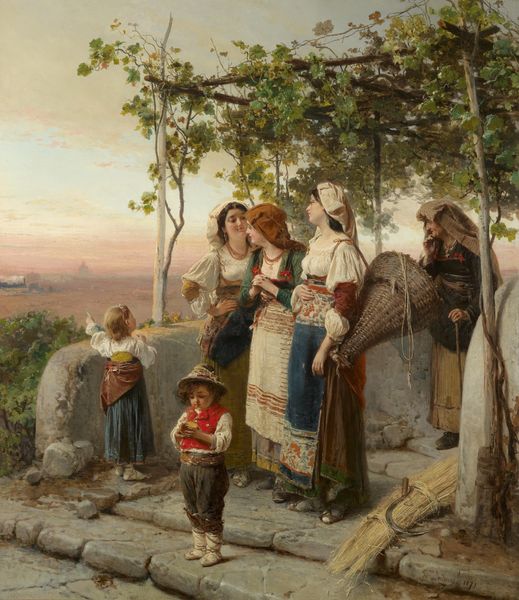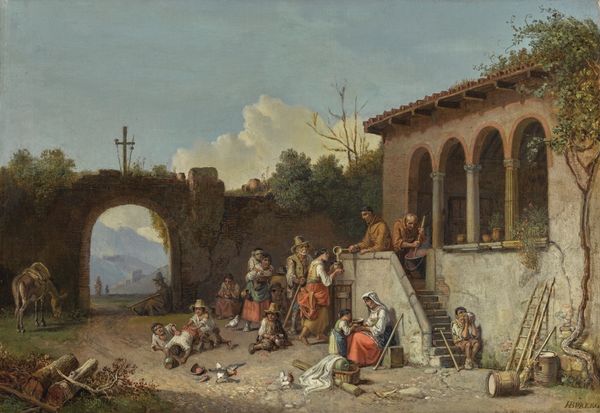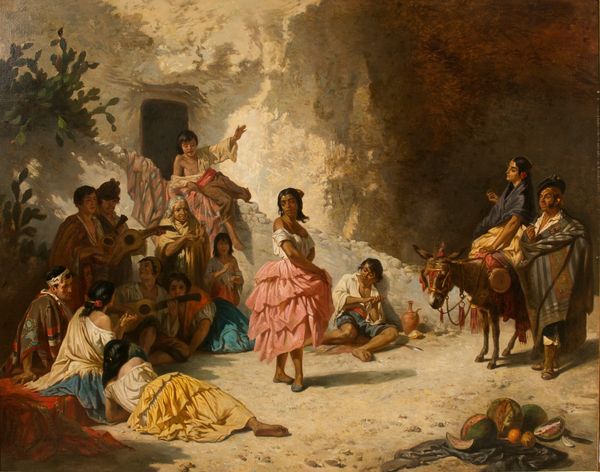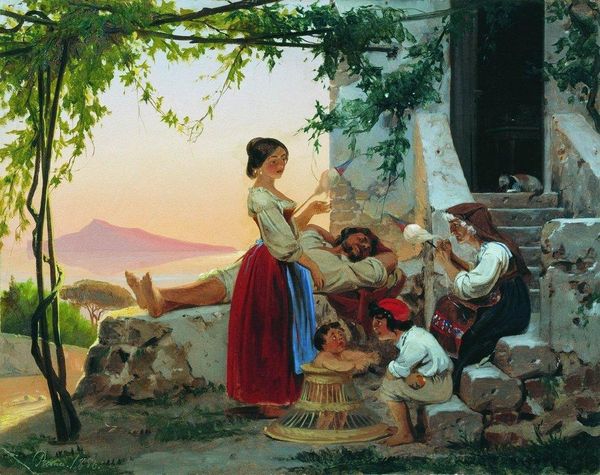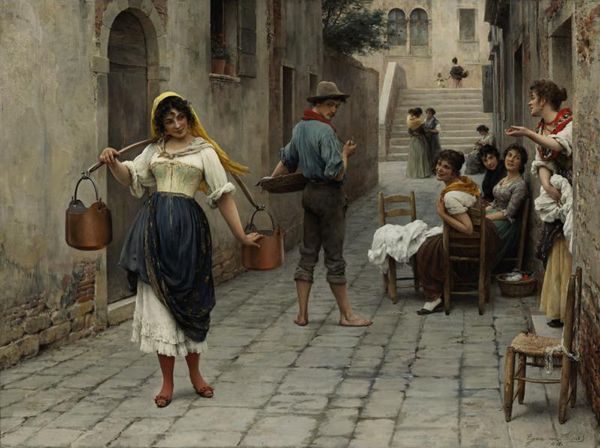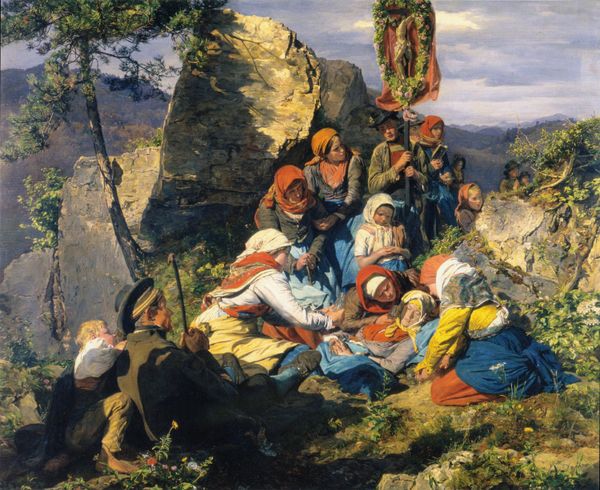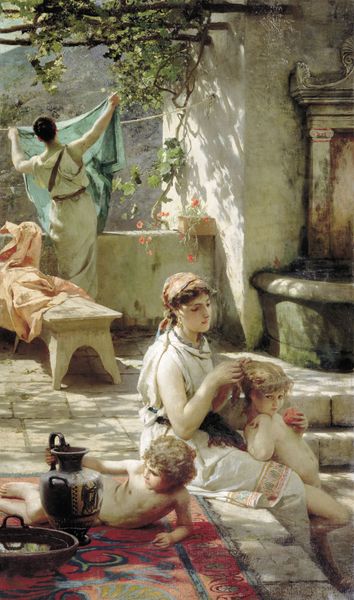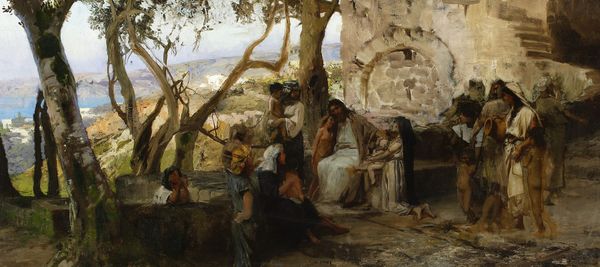
Dimensions: 91 x 118 cm
Copyright: Public domain
Noè Bordignon painted ‘Girls Who Sang in the Valley’ with oil on canvas, probably sometime in the late nineteenth century. We see five young girls grouped together beside what looks like a dried-up riverbed in a rural Italian landscape. The picture idealizes peasant life and the harmonious relationship between people and nature. Bordignon’s art was made at a time of enormous social change in Italy, as industrial capitalism began to displace more traditional ways of life. His nostalgic imagery may have been a way of preserving a sense of cultural identity. To better understand the painting’s meaning, we can turn to sources from the time it was made: popular songs, regional histories, and the records of cultural institutions. These reveal how artists were thinking about the public role of art. Bordignon presents a romanticized view, but social historians can reflect on how such images helped to shape Italian culture.
Comments
No comments
Be the first to comment and join the conversation on the ultimate creative platform.
